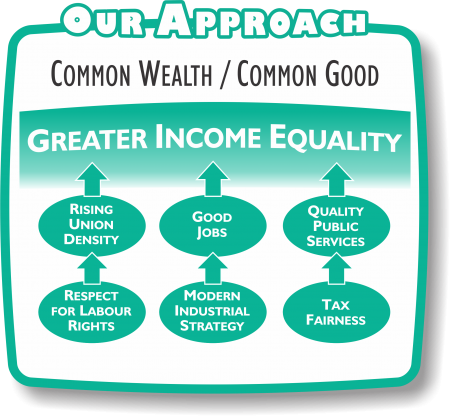ALBERTA LETTER

FROM ALVIN FINKEL
JASON KENNEY BECAME premier of Alberta this past April because a majority of Albertans still believe the oil and gas industry is the key to prosperity in the province and that he would be ruthless in his efforts to force the federal government to build new pipelines to move oilsands oil to Asia.
While the oil and gas industry remains as precarious as ever, Kenney has had his chance to be ruthless: against public sector workers.
Channeling Ralph Klein, Kenney plans to strip the public sector of about 15 percent of its spending at the time the former NDP government was defeated. His plans include at least 8000 direct dismissals of public sector workers in 2020, including 6000 in health services. But far more will lose their jobs because of cuts to public education, both K-12 and post-secondary, plus big cuts in grants to municipalities and to infrastructure projects.
Those who remain in work, such as teachers, will be dealing with even larger classes than at present—some Edmonton teachers have classes with 43 pupils that include special needs children and English as a second language learners .
Meanwhile, while Premier Kenney extols greater privatization of medical services and education, his government is centralizing government control over public service pensions.
It has given itself the right to direct pension boards to invest workers’ contributions in ways that it feels benefit the Alberta economy, and it has abolished an 80-year-old lucrative teachers’ pension plan and placed it under AIMCo, the relatively new manager of many of the other public pensions.
Kenney also wants to expropriate the Canada Pension Plan for Alberta members and place it too under AIMCo control. Workers fear that the UCP will direct AIMCo to invest heavily in oil and gas, assets that could become worthless as fossil fuel demand dwindles.
A showdown is coming in 2020 and Kenney may be forced to back down, at least in part.
His cuts to disability programs and to pharmaceutical coverage for seniors’ family members, as well as his putting an end to government limits on heating bills and automobile insurance are unpopular—even among people who are OK with his attacks on the public sector.
There is a great deal of buyers’ remorse, but workers in the declining oil and gas sector remain a captive audience for Kenney’s “blame the feds, not the climate crisis” approach.
Public servants overall reject his claims that the province is now too poor to support decent public services and decent pay and benefits for those who provide them. That’s a change from the period of the Klein cuts when a large section of even the public sector accepted the government’s misleading evidence that Alberta faced a debt crisis and that the public service had to pay the price.
Having sacrificed so much not that long ago, public servants are tired of understaffing, zero pay increases over long periods, and attacks on their work by government members. The ball is in Kenney’s court but he seems to relish the prospect of civil service strikes. He is hoping that each sector will protest separately and only for its own interests and that he can get away with divide and conquer.
Kenney's Captain Alberta stance with Ottawa may satisfy his base, but a November opinion poll showed his popularity at just 42 percent—a significant drop from the 60 percent he got in September.
So far the evidence that public sector workers across different unions will act together is mixed but encouraging.
Alvin Finkel is president of the Alberta Labour History Institute and a renowned historian, whose latest book is Compassion: A Global History of Social Policy (London: Palgrave Macmillan, 2019).
- 30 -













Add new comment